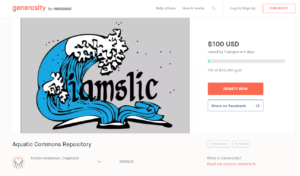It was finally launched the webpage dedicated to Prof. Balech (1912-2007)- more than a dinoflagellate taxonomist -, fondly and enthusiastically prepared by my friend Dr. Rut Akselman (for those who came to Mar del Plata or read the Proceedings 2010, she showed and explained the embroidered Diatoms). The page will be completed in stages.Â
Guillermina Cosulich, INIDEP Library, Argentina
—– Original Message ———————————————————————-
Digital Access to the Publications (1944-2008) of Professor Enrique Balech
Available at http://goo.gl/PyZQg
This initiative led by Dr. Rut Akselman and supported by IOC UNESCO, provides public access to most of the planktological studies published by the late Professor Enrique Balech. Some of them are little known and others are hard to find, even in specialized libraries. The great advantage is their availability in digital format and to have all of them in the same place. Our intention is to incorporate more papers in successive stages.
While E. Balech is mainly known for his taxonomic studies of dinoflagellates, especially those related to the genus Alexandrium, a producer of paralytic shellfish toxins, many of his publications (more than a hundred) focused on floristic studies of plankton communities, which he applied to improve biogeographical and hydrodynamic knowledge. Planktonic communities were thoroughly characterized in Balechs studies, because he could identify most of the species of the taxonomic groups present in each sample, from diatoms, dinoflagellates and tintinnids, to coccolithophorids, radiolarians or heliozoans, when present, thus taking into account both the phytoplankton and zooplankton .
We hope this initiative will be of value to the scientific community.
Henrik Enevoldsen
Intergovernmental Oceanographic Commission of UNESCO
Head, IOC Science and Communication Centre on Harmful Algae
University of Copenhagen- Marine Biological Section- Denmark
E-mail: h.enevoldsen@unesco.org Skype: henrik.oksfeldt.enevoldsen
********************************************************************





